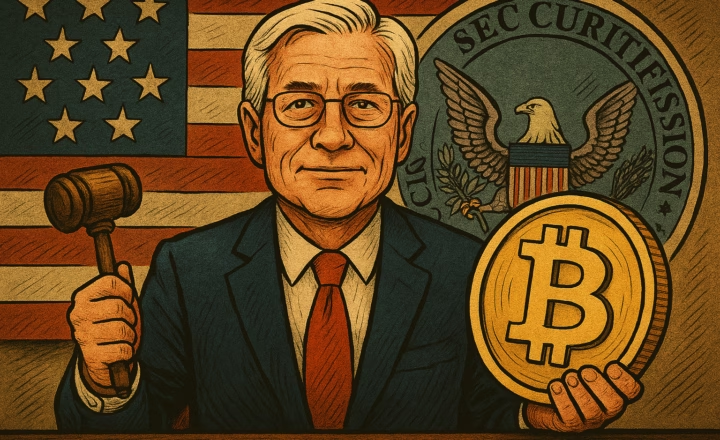Background of the Lawsuit
In July 2023, the U.S. Securities and Exchange Commission (SEC) filed a lawsuit against Richard Heart (also known as Richard Schueler), the founder of the cryptocurrency Hex, alleging that he illegally raised over $1 billion through the sale of unregistered digital asset securities and misappropriated approximately $12.1 million for personal luxuries, including high-end cars and the world’s largest black diamond . Despite being a U.S. citizen, Heart resides in Finland and primarily promoted Hex tokens and related projects, PulseChain and PulseX, online, marketing them as a “path to immense wealth” . Specifically, SEC claimed that Heart positioned Hex as a “high-yield blockchain certificate of deposit,” promising an annual return of 38%, while simultaneously asserting that his tokens were “not securities,” creating a contradiction in messaging . Furthermore, Heart allegedly used funds raised through Hex to establish the PulseChain blockchain network and the PulseX decentralized exchange, raising substantial additional capital through these offerings. The SEC deemed these sales as unregistered securities transactions, further alleging that Heart misappropriated investor funds to purchase luxury sports cars, including McLarens and Ferraris, multi-million-dollar Rolex watches, and the 555-carat black diamond “Enigma” at an auction . Despite his attempts to evade regulation by describing token purchases as “sacrifices” rather than “investments,” the SEC insisted that these activities violated securities laws .
Details of the Court’s Decision
On February 28, Judge Carol Bagley Amon of the U.S. District Court for the Eastern District of New York dismissed the SEC’s lawsuit against Heart . The primary reason cited for the dismissal was lack of jurisdiction in the United States. According to the ruling, Heart’s online promotional activities were directed at a global audience rather than being specifically targeted at U.S. investors, and the SEC failed to provide sufficient evidence that Heart intentionally engaged with U.S.-based investors . Notably, the tokens in question were not available for purchase on U.S. exchanges, and the SEC’s complaint only mentioned the “possibility” that some U.S. investors participated, lacking concrete proof that transactions occurred within U.S. jurisdiction .
Additionally, even if misappropriation of funds had occurred, the alleged activities took place via digital wallets and cryptocurrency platforms, none of which were based in the United States, leading the court to conclude that “the case has no direct connection to the U.S.” . Consequently, the ruling stated that the SEC’s claims did not fall within the applicable scope of U.S. securities laws. However, the court clarified that the SEC has 20 days (until March 20, 2025) to refile an amended complaint addressing the deficiencies in its original lawsuit . Therefore, this dismissal is not a final resolution but rather a procedural decision that allows the SEC the opportunity to revise and resubmit its case.
Regulatory Response and Implications for Other Crypto Lawsuits
As of now, the SEC has not issued an official comment on the ruling . The regulatory body has the option to file a revised complaint within 20 days or appeal the decision . The jurisdictional issue at the heart of the ruling is a legal technicality, and if the SEC presents additional evidence (such as direct transactions with U.S.-based investors), the lawsuit could potentially proceed. This means that the SEC may attempt to reassert U.S. market relevance in pursuing enforcement actions against Heart.
More broadly, this ruling highlights the challenges of applying U.S. securities laws to global digital asset offerings. In recent years, the SEC has intensified its enforcement against the crypto industry, filing lawsuits against major cryptocurrency exchanges such as Binance and Coinbase, as well as multiple token issuers. However, these legal efforts are facing increasing pushback in U.S. courts.
For instance, in July 2023, a federal court ruled in the Ripple case that the sale of XRP to retail investors via cryptocurrency exchanges did not constitute a securities offering , marking a significant setback for the SEC. Additionally, in another case, Tron founder Justin Sun and the SEC have paused litigation to enter settlement discussions regarding unregistered securities offerings .
This pattern suggests that U.S. courts are increasingly challenging the SEC’s broad regulatory approach toward cryptocurrencies. However, the SEC remains firm in its stance that most digital assets qualify as securities and has continued aggressive enforcement actions in the name of investor protection. In this case, while the lawsuit against Heart was dismissed, the SEC may seek international cooperation to seize his assets, as reports indicate that Finnish authorities have already confiscated his luxury watch collection . Given these dynamics, the crypto industry remains on high alert for the SEC’s next steps.
Market Impact and Investor Sentiment
The ruling provided temporary relief to the crypto market, as it signaled a legal victory against the SEC’s stringent enforcement. Following the news, tokens associated with Heart’s projects saw a sharp rally: Hex (HEX) surged by approximately 78%, PulseChain (PLS) jumped 36%, and PulseX (PLSX) climbed 67% . This rapid appreciation was driven by investor optimism that regulatory risks surrounding these assets had diminished.
However, this surge assumes that the SEC will not pursue further legal action. If the agency decides to refile its case with stronger jurisdictional arguments, the regulatory uncertainty could once again dampen market sentiment. Although the ruling did not entirely eliminate risks for investors, the industry views it as a rare victory against the SEC. Consequently, it has helped fuel a positive outlook within the broader cryptocurrency market .
In the long term, as regulatory uncertainty persists, investors are expected to closely monitor legal developments and adjust their risk exposure accordingly.
Industry Reactions
The decision has been largely welcomed within the cryptocurrency community. Heart and his supporters have celebrated the ruling, with his team issuing a statement calling it “a significant legal victory that provides relief and opportunities for cryptocurrency founders and projects.” Heart himself posted on social media (@RichardHeartWin), emphasizing that “HEX has been operating flawlessly for over five years. Today’s ruling provides reassurance and opportunity for the entire cryptocurrency industry”.
Meanwhile, John Deaton, a lawyer and vocal advocate for Ripple in its legal battle with the SEC, reacted to the ruling by stating, “Now it’s XRP’s turn,” urging the SEC to swiftly resolve its lawsuit against Ripple . This reaction underscores the broader significance of the case, as market participants see it as a potential turning point in the regulatory landscape.
While the crypto industry welcomes this ruling as a positive sign, some caution remains. The SEC’s next moves will determine whether this legal victory will have lasting implications or if it merely represents a temporary setback for regulatory enforcement. For investors, understanding the evolving balance between regulatory risks and industry growth remains essential.











